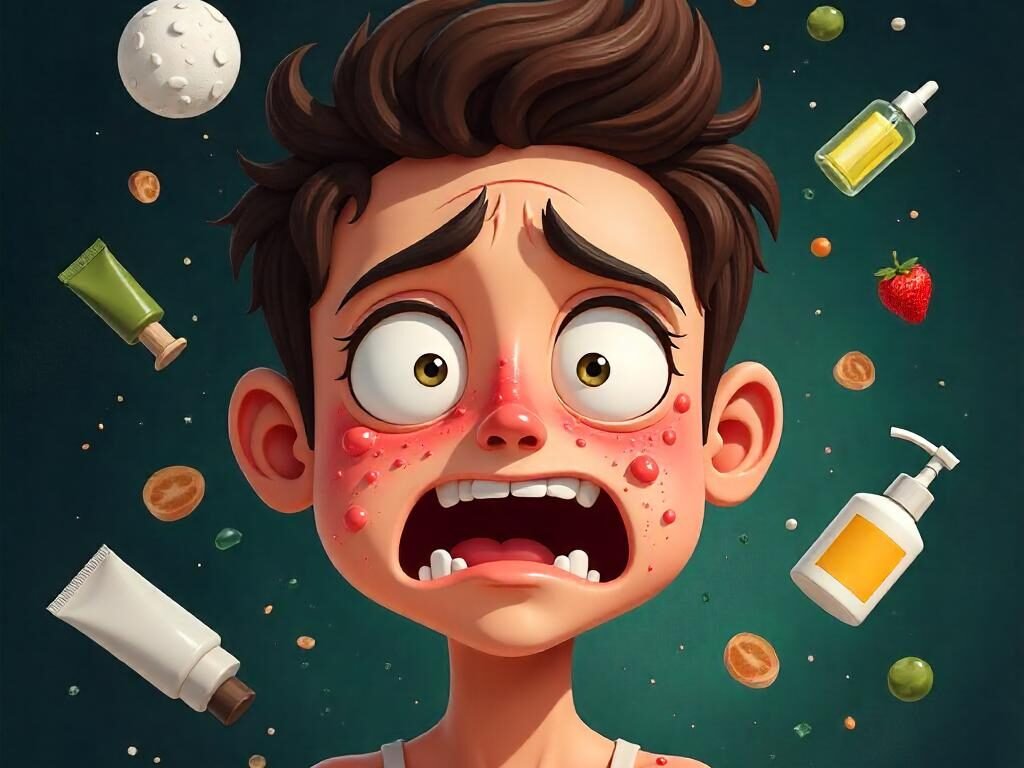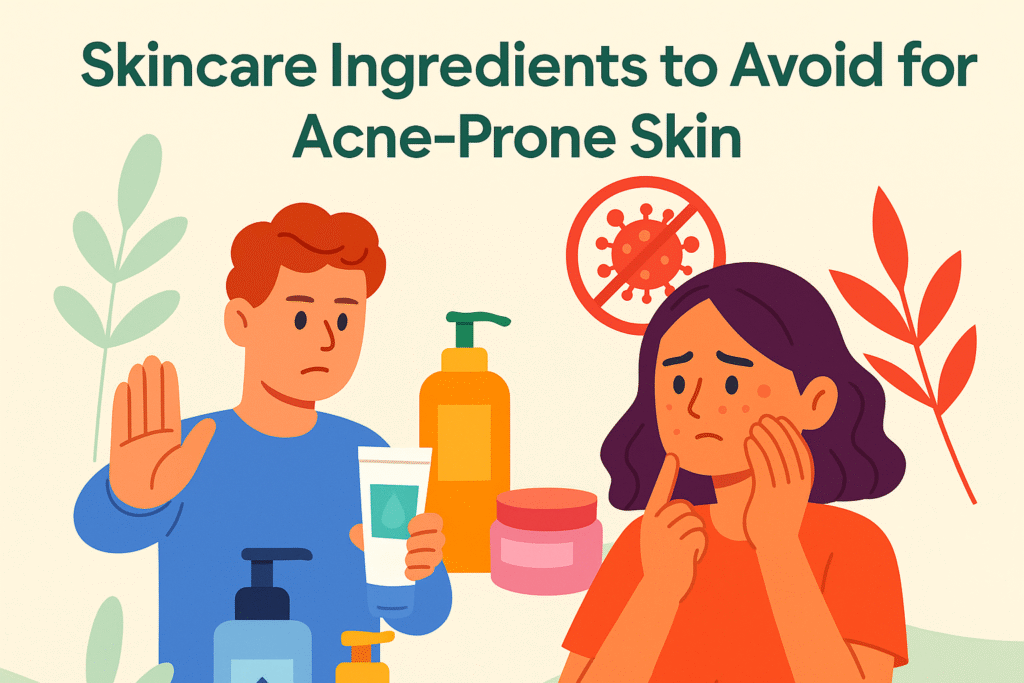I still remember the night before my university’s annual photo day. I had bought a new serum I saw trending on TikTok “miracle glow in 7 days.” Eager and excited, I applied it all over my face without reading the ingredients. The next morning, I woke up with red, painful breakouts across my cheeks. As someone with acne prone skin, I should have known better. But like many others, I fell into the trap of good marketing and ignored what really mattered the ingredients.
This is why it’s important to know the skincare ingredients to avoid for acne prone skin. If your skin tends to react easily or break out often, understanding what not to apply can save you from inflammation, scars, and months of healing.
Let’s explore which common ingredients might be quietly sabotaging your skincare routine and what you can do instead.
1. Coconut Oil (Comedogenic Alert)
It smells great and feels luxurious, but coconut oil is highly comedogenic. This means it clogs pores, leading to blackheads and breakouts. While it works wonders for dry or mature skin types, acne prone skin often can’t tolerate it. Always double check the comedogenic rating of any oil before applying it to your face.
2. Alcohol (Especially Denatured Alcohol)
Many toners and acne treatments contain alcohol because it gives that satisfying tight feeling. But this tightness is actually your skin crying for help. Alcohol strips the skin of natural oils, which causes your sebaceous glands to go into overdrive. More oil means more clogged pores and more acne.
3. Fragrance and Parfum
That fancy rose scented face wash might feel like a spa day, but artificial fragrances can irritate acne prone skin. Even natural fragrances like essential oils can cause sensitivity. Redness, itching, or tiny pimples may follow. If your skin is already inflamed, avoid anything with “fragrance” or “parfum” on the label.

4. Lanolin
Derived from sheep’s wool, lanolin is often found in moisturizers because it’s incredibly hydrating. But it’s another pore clogging culprit for acne prone skin. While it may work well on dry elbows or cracked lips, it can be too heavy for the delicate facial skin that struggles with breakouts.
5. Silicones (Like Dimethicone)
Silicones are in many primers and moisturizers because they give that smooth, soft focus finish. However, they can trap bacteria and sebum under the surface of the skin. If you’re breaking out along your jawline or cheeks and using silicone rich products, they could be the silent trigger.
6. Sodium Lauryl Sulfate (SLS)
This foaming agent is often found in cleansers, shampoos, and even toothpaste. It creates that rich lather many people love. But for acne prone skin, it can be too harsh stripping the skin’s natural barrier and leaving it inflamed. A gentler cleanser will clean just as well without the irritation.
7. Isopropyl Myristate
Often used to give products a silky feel, isopropyl myristate can deeply clog pores. It’s often hidden in foundations, lotions, and hair products. If your breakouts are frequent near the hairline or temples, check your labels.
A Quick Tip from My Journey
After that photo day disaster, I began reading every product label like it was a final exam. I learned to avoid the ingredients listed above and started patch testing every new product. Within three months, my skin was clearer, calmer, and far more predictable.
One of the most empowering things you can do for acne prone skin is to become ingredient aware. It takes effort, yes, but the results are worth it.
Conclusion: Be Kind to Your Skin
Skincare is not just about what you use it’s about what you avoid. Acne prone skin is sensitive, easily overwhelmed, and needs simplicity more than anything. By steering clear of harsh ingredients like coconut oil, alcohol, and synthetic fragrance, you’re already halfway to healthier skin.
Understanding the skincare ingredients to avoid for acne prone skin can truly transform your routine. Your skin deserves to heal, not fight unnecessary battles every day.
So, the next time you find yourself tempted by a new product, pause and check the label. Your future face will thank you.


Pingback: Best natural remedies for hormonal acne in teens: How I Beat Hormonal Acne As a Teen And You Can Too - foncentra.com